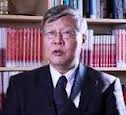https://youtu.be/spyX1T8sG1o
https://youtu.be/acSMJJfF_ag
China Air carried Kim to Singapore talks with Trump
https://youtu.be/V3PbgGb8zIE
The historic meeting on Tuesday between North Korean leader Kim Jong-un and US President Donald Trump began with a handshake at the Capella hotel, Singapore.
The handshake lasted about 20 seconds before the two leaders walked to the meeting room accompanied by their interpreters.
Trump and Kim sat next to each other and answered a few questions from the media. Trump said he hopes the historic summit would be "tremendously successful,” adding, "We will have a terrific relationship ahead" as he faced Kim.
Kim said there were a number of “obstacles” and “prejudices” which made today’s meeting more difficult. “We overcame all of them and we are here today,” he told reporters through a translator.
Of particular note is the display of the two countries’ flags at the hotel, which is unusual between two countries with no formal diplomatic ties. Observers believe that this is a positive sign.
Trump arrived at the hotel about 8:30am, with Kim arriving five minutes after.
Displaying the national flag of North Korea shows that the US wants to express its sincerity and kindness to North Korea, Cheng Xiaohe, an associate professor at the Renmin University of China's School of International Studies, told the Global Times on Tuesday.
“The move toward establishing formal diplomatic ties could be an achievement of the summit,” Cheng said.
Hundreds of journalists are gathered at the Press Filing Center of the JW Marriott Hotel Singapore, where they can watch the livestream of the historic moment. Dozens of photographers attempted to get closer to Sentosa Island in the morning to film and take photos for the two leaders’ motorcades.
Trump and Kim met alone at 9:15 am and held an expanded bilateral meeting 45 minutes after. At 11:00, the two leaders are scheduled to have a working luncheon. Trump will leave Singapore at 7pm on Tuesday, the White House said.
Trump says summit with North Korea's Kim is 'very, very good'
SINGAPORE: U.S. President Donald Trump said he had forged a "good relationship" with North Korean leader Kim Jong Un at the start of a historic summit in Singapore on Tuesday, as the two men sought ways to end a nuclear standoff on the Korean peninsula.
Should they succeed in making a diplomatic breakthrough, it could bring lasting change to the security landscape of Northeast Asia, like the visit of former U.S. President Richard Nixon to China in 1972 led to the transformation of China.
"There will be challenges ahead," Kim said, but he vowed to work with Trump. Both men sat against in the hotel's library against a backdrop of North Korean and U.S. flags, with Kim beaming broadly as the U.S. president gave him a thumbs up.
With cameras of the world's press trained on them, Trump and Kim displayed an initial atmosphere of bonhomie.
Both men had looked serious as they got out of their limousines for the summit at the Capella hotel on Singapore's Sentosa, a resort island with luxury hotels, a casino, manmade beaches and a Universal Studios theme park.
But they were soon smiling and holding each other by the arm, before Trump guided Kim to the library where they held a meeting with only their interpreters. Trump had said on Saturday he would know within a minute of meeting Kim whether he would reach a deal.
After some initial exchanges lasting around 40 minutes, Trump and Kim emerged, walking side-by-side through the colonnaded hotel before re-entering the meeting room, where they were joined by their most senior officials.
Kim was heard telling Trump through a translator: "I think the entire world is watching this moment. Many people in the world will think of this as a scene from a fantasy...science fiction movie."
Asked by a reporter how the meeting was going, Trump said: "Very good. Very, very good. Good relationship."
Kim also sounded positive about the prospects.
"We overcame all kinds of scepticism and speculations about this summit and I believe that this is good for the peace," he said.
Trump was joined by Secretary of State Mike Pompeo, National Security Adviser John Bolton, and John Kelly, White House Chief of Staff, for the expanded talks, while Kim's team included former military intelligence chief Kim Yong Chol, foreign minister Ri Yong Ho and Ri Su Yong, vice chairman of the ruling Workers' Party.
MARKETS CALM
As the two leaders met, Singapore navy vessels, and air force Apache helicopters patrolled, while fighter jets and an Gulfstream 550 early warning aircraft circled.
Financial markets were largely steady in Asia and did not show any noticeable reaction to the start of the summit. The dollar was at a three-week high and the MSCI index of Asia-Pacific shares was largely unchanged from Monday.
While Trump and Kim search each other’s eyes and words for signs of trust or deceit, the rest of the world will be watching, hoping that somehow these two unpredictable leaders can find a way to defuse one of the planet's most dangerous flashpoints.
A body language expert said both men tried to project command as they met, but also displayed signs of nerves.
In the hours before the summit began, Trump expressed optimism about prospects for the first-ever meeting of sitting U.S. and North Korean leaders, while Pompeo injected a note of caution whether Kim would prove to be sincere about his willingness to denuclearise.
Officials of the two sides held last-minute talks to lay the groundwork for the summit of the old foes, an event almost unthinkable just months ago, when they were exchanging insults and threats that raised fears of war.
Staff-level meetings between the United States and North Korea were going "well and quickly," Trump said in a message on Twitter on Tuesday. But he added: "In the end, that doesn't matter. We will all know soon whether or not a real deal, unlike those of the past, can happen!"
The combatants of the 1950-53 Korean War are technically still at war, as the conflict, in which millions of people died, was concluded only with a truce.
On Tuesday morning, Pompeo fed the mounting anticipation of diplomatic breakthrough, saying: "We're ready for today."
He earlier said the event should set the framework for "the hard work that will follow", insisting that North Korea had to move toward complete, verifiable and irreversible denuclearisation.
North Korea, however, has shown little appetite for surrendering nuclear weapons it considers vital to the survival of Kim's dynastic rule.
Sanctions on North Korea would remain in place until that happened, Pompeo said on Monday. "If diplomacy does not move in the right direction ... those measures will increase."
He added: "North Korea has previously confirmed to us its willingness to denuclearise and we are eager to see if those words prove sincere."
The White House said later that discussions with North Korea had moved "more quickly than expected" and Trump would leave Singapore on Tuesday night after the summit, rather than Wednesday, as scheduled earlier.
Kim is due to leave on Tuesday afternoon, a source involved in the planning of his visit has said.
One of the world's most reclusive leaders, Kim visited Singapore's waterfront on Monday, smiling and waving to onlookers, adding to a more affable image that has emerged since his April summit with South Korean leader Moon Jae-in. 'CHANGED ERA'
Just a few months ago, Kim was an international pariah accused of ordering the killing of his uncle, a half-brother and scores of officials suspected of disloyalty.
The summit was part of a "changed era", North Korea's state-run KCNA news agency said in its first comments on the event.
Talks would focus on "the issue of building a permanent and durable peace-keeping mechanism on the Korean peninsula, the issue of realising the denuclearisation of the Korean peninsula and other issues of mutual concern", it added.
Ahead of the summit, North Korea rejected unilateral nuclear disarmament, and KCNA's reference to denuclearisation of the peninsula has historically meant it wants the United States to remove a "nuclear umbrella" protecting South Korea and Japan.
Trump spoke to both South Korea's Moon and Japan's Prime Minister Shinzo Abe on Monday to discuss developments ahead of the summit.
"I too, got little sleep last night," Moon told his cabinet in Seoul as the summit began in Singapore.
"I truly hope it will be a successful summit that will open a new age for the two Koreas and the United States and bring us complete denuclearisation and peace." - REUTERS
Related:




















 First round debate By Wang Xiaoying
First round debate By Wang Xiaoying

